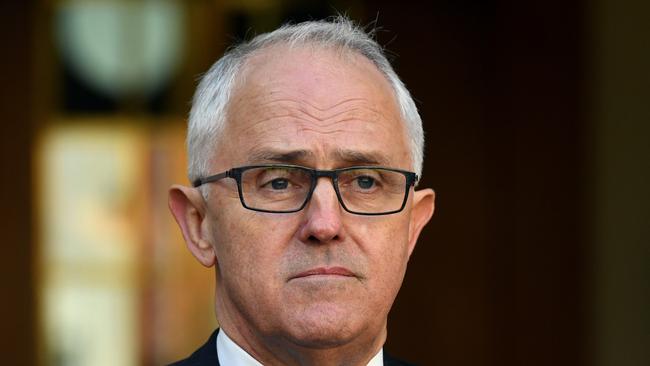Senate a sticking point in push for four-year terms
Malcolm Turnbull has agreed to talks with Bill Shorten over a Labor plan to embrace fixed four-year terms.

Malcolm Turnbull has agreed to talks with Bill Shorten over a Labor plan to overhaul the Constitution and embrace fixed four-year terms for federal elections in a move that could see senators sitting for up to eight years.
The Opposition Leader yesterday challenged the government to co-operate with him in developing a reform model that could successfully be put to Australians via a referendum — of which only eight have been carried.
Mr Shorten said a referendum could only be successful with the backing of the Liberal Party, with the Greens yesterday revealing they would consider any proposal for longer terms and leading Senate powerbroker Nick Xenophon backing a fresh debate to have the issue “thrashed out”.
Senator Xenophon, who controls three upper house seats, said he thought eight-year terms for senators was too long — one of the key stumbling blocks to change.
“We have been skirting around the issue for too long,” he said. “We need to have a proper discussion about this. I think fixed terms should be on the agenda.”
During a phone call with Mr Shorten yesterday morning, the Prime Minister agreed to discuss the Labor policy for four-year-terms at their next meeting, but refrained from giving his personal support to the shake-up.
The case for change has strong currents of cross-party support, with NSW Liberal MP David Coleman this year backing four-year terms when he released a draft bill to establish a referendum.
Mr Coleman told The Australian yesterday that most Western democracies had parliamentary terms of four years or longer and argued the change would deliver a more stable political system. “Fixed four-year terms would mean much greater certainty for business and the broader community,” Mr Coleman said. “They would also remove the unnecessary and unproductive uncertainty about election dates. On average our federal terms are about 2½ years — fixing terms at four years would remove a lot of the noise in our system and lead to better governance.”
Speaking on the ABC’s Insiders program yesterday, Mr Shorten said governments could be “more daring and more determined” when prime ministers were not “constantly thinking” about the next election.
He said the problem of an eight-year Senate term should not been seen as a “deal killer”.
Australian Conservatives senator Cory Bernardi slammed the arguments in favour of change, saying that, on recent trends, it would only leave Australians with “a bad government for longer”.
George Williams, a constitutional law expert at the University of NSW, said there was a “lot of merit” in four-year terms but noted the proposition had failed when it was put to a referendum by the Hawke Labor government in 1988.
Professor Williams said the model with the best chance of success would preserve mechanisms allowing early elections to be called in political emergencies like a prime minister losing the ability to form a government on the floor of parliament.
He also disagreed with Senator Xenophon by arguing in favour of eight-year terms, saying this would ensure that half the upper house was quarantined from being re-elected on the dominant issues of a single election.
“There are a number of people who are attracted to the idea that the Senate, in acting as a check on the government, isn’t turned over completely each election,” he said. “There’s a design principle there that I think a number of people will want to retain.”
While he backed the need for a new debate on four-year terms, Senator Xenophon yesterday argued for full Senate elections to be held every four years because it would encourage Australians to think more carefully about how they voted in the upper house.
“I think we will probably see an even stronger trend where people vote differently between the two houses,” he told The Australian. “I trust the intelligence and the commonsense of the voter to get it right.”
A spokesman for Greens leader Richard Di Natale said the party had no formal position on four-year terms, but did support the concept of having fixed terms. “(We) would give due consideration to longer term lengths if government proposed them as part of a legislative reform agenda,” he said.



